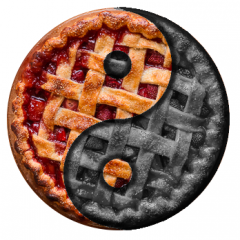Educating Customers About Self Clean
Self-clean sounds like a great idea, right? Just push a button and watch your oven burn away all that caked-on grease and charred food.It certainly makes for a good selling point. But is this no-hassle cleaning feature really all it's cracked up to be? And what is the best way for the customer to use it (if at all)?
First off: does it actually work? Can the oven clean itself just by getting really hot? Yes, definitely. Self-cleaning isn't just a gimmick, and when used properly, it does actually help clean the oven.
However, it needs to reach 900 degrees F in order to do this. For comparison, residential ovens can normally only go up to around 500 degrees F during normal use. That fact alone makes self-clean an extremely high-stress event for the appliance, and that high stress can cause a few problems.
Self-cleaning ovens are famous for door lock failures during self-clean. This is most often caused not by a failure of the door lock itself, but by grease. You see, when temperatures reach 900 F, any grease inside the oven cavity will start turning to vapor. Most of this gets vented out, but especially if there's a lot of it, some can get up into the door lock mechanism. Now that it's out of the superheated environment, it begins to solidify. If enough of it gums up the locking mechanism, the oven won't be able to unlock itself at the end of the cleaning cycle. Thus you have the cause of many a pre-Thanksgiving panic.
Beyond issues with vaporized grease, there are any number of components that can fail due to the heat from self clean, from the heating elements to the wiring itself. As I said before, it's a very stressful thing to do to an oven.
Knowing that, what should you advise your customers? Should you tell them to never use self-clean?
The rule of thumb is that customers should either never use self clean or use it frequently -- as in once every couple of months. Customers are most likely to have problems when they only run self-clean, say, once a year when the relatives come over. The more time there's been since the last self clean for grease and gookus to build up, the more stressful the cycle will be, and the more likely it is that something will go awry.
Want to learn more about cooking appliances, the technology behind them, and how to troubleshoot them like a master? Click here to check out our course on cooking appliances at the Master Samurai Tech Academy.
-
.png) 10
10

.png.aa21533c6656a1cb054a172848652cb2.png)




11 Comments
Recommended Comments